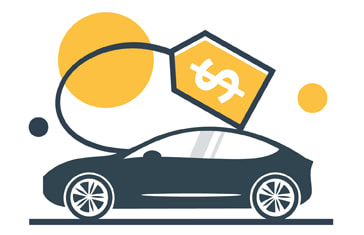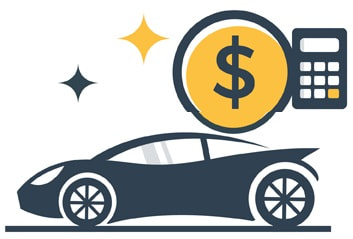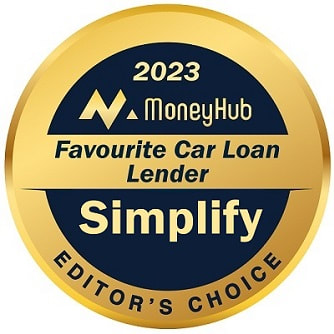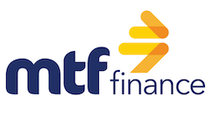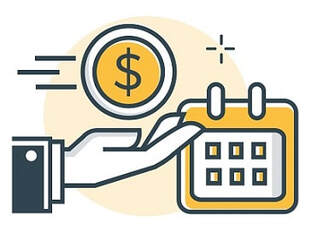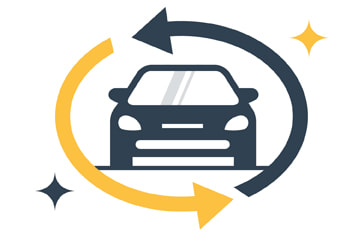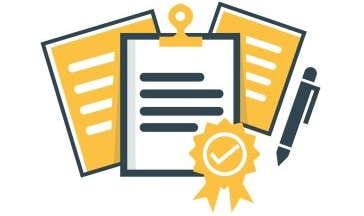Personal Loan vs Car Loan - What is Better for Buying a Car?
Our guide outlines the differences between car loans (both secured and unsecured), personal loans and alternative financing options.
Updated 1 February 2024
Not every car loan is the same - we continually hear reports from new car owners who later realise they were ripped off and signed up for expensive car financing without knowing the implications. Because buying a car isn't something you often do, it's very easy to overpay or get an unsuitable loan.
Our guide covers:
Looking for the best car finance offers? Our dedicated Car Finance guide has you covered. If you are thinking about getting a guarantor on a car loan, our Car Loan Guarantors guide outlines what you need to know.
Not every car loan is the same - we continually hear reports from new car owners who later realise they were ripped off and signed up for expensive car financing without knowing the implications. Because buying a car isn't something you often do, it's very easy to overpay or get an unsuitable loan.
Our guide covers:
- What is a Car Loan, and What are the Different Types?
- What is a Personal Loan?
- Another Option – Balance Transfer Credit Card
- Frequently Asked Questions
- Conclusion: Choosing the Right Car Finance for You – Car Loan, Personal Loan, or Balance Transfer Credit Card
Looking for the best car finance offers? Our dedicated Car Finance guide has you covered. If you are thinking about getting a guarantor on a car loan, our Car Loan Guarantors guide outlines what you need to know.
MoneyHub Founder and Head of Research Christopher Walsh shares his view on car loans:"The New Zealand car loans industry offers a lot to borrowers, but you need to know where to look. We often see reports in the media of car loan rip-offs where hardworking New Zealanders end up owing more than their car is worth. The financial stress endured by anyone servicing (and surviving) such loans is intolerable".
"Too often, people pay too higher an interest rate because they don't compare. Car yard salespeople make a lot of money from arranging financing, but buyers don't often have the chance to compare other financing offers. We also know a lot of people don't understand what they're signing up to, which creates problems later on". "This guide outlines everything you need to know to make the right car loan choice BEFORE you buy a car". |
What is a Car Loan, and What are the Different Types?
A car loan is a lot different than a personal loan for many reasons, but the largest reason the collateral required. Car loans use your car as collateral. If you default on the loan, the lender will almost always take the car as part of the security agreement.
Car loans usually come with a fixed interest rate; your rate never changes throughout the loan's life. This is great for budgeting; you always know your payment amount and how much you need in your bank account to make sure your payment clears. There are downsides to car loans, though, which we outline below.
Car loans usually come with a fixed interest rate; your rate never changes throughout the loan's life. This is great for budgeting; you always know your payment amount and how much you need in your bank account to make sure your payment clears. There are downsides to car loans, though, which we outline below.
Types of Car Loans
You can secure a car loan in two main places – the car dealership or a private lender. Both have the same outcome – they provide money to buy your car. Our guide to dealership loans vs car loans has more details.
Dealership car financing is a car loan you arrange at the dealership and covers new and used cars, although the interest rate and lending costs may differ between new and used vehicles.
1. Dealership Car Loans Know This First:
You may get instant approval while you're at the dealership, as most car salespeople make a lot of money on car finance. What you pay for finance will involve upfront fees and interest, of which the car yard will take a share of. For this reason, it's in their interest to make financing available.
In general, dealership car financing has specific limitations:
However, one benefit is that you may be able to trade in your old car and use the money as a deposit for the new car. This solves a lot of hassle around selling your car privately on Trade Me or AutoTrader etc.
Add-on Insurances: Car Lenders may offer you Mechanical Breakdown Insurance (MBI), Payment Protection Insurance (PPI) and Guaranteed Asset Protection Insurance (GAP). We do not believe these policies offer value-for-money or cost-effective protection for most people. Our guides to both of these insurance options explain what you need to know. You may be encouraged to buy MBI and/or GAP insurance, but they are not compulsory with any car loan. Our view is that buying add-on insurance makes a car loan more expensive.
2. Private Lender Car Loans
Our view is simple - arranging private lender financing (i.e. from a bank, specialist lender or dedicated car financing company) is, for most people, the most affordable and transparent way to buy a car. For anyone prepared to compare the best providers, there are significant savings available. Best of all, you know exactly what you can borrow so you can negotiate with purpose. Other benefits include:
Dealership car financing is a car loan you arrange at the dealership and covers new and used cars, although the interest rate and lending costs may differ between new and used vehicles.
1. Dealership Car Loans Know This First:
You may get instant approval while you're at the dealership, as most car salespeople make a lot of money on car finance. What you pay for finance will involve upfront fees and interest, of which the car yard will take a share of. For this reason, it's in their interest to make financing available.
In general, dealership car financing has specific limitations:
- You may get financing and drive away on the same day, but it may not be the best value.
- The repayment terms are often inflexible, meaning early repayment isn't allowed
- Rates are rarely competitive as the environment isn't 'comparison-friendly.'
- Attractive value dealer financing (0% interest for 12 months etc.) may only be available on higher-end cars.
However, one benefit is that you may be able to trade in your old car and use the money as a deposit for the new car. This solves a lot of hassle around selling your car privately on Trade Me or AutoTrader etc.
Add-on Insurances: Car Lenders may offer you Mechanical Breakdown Insurance (MBI), Payment Protection Insurance (PPI) and Guaranteed Asset Protection Insurance (GAP). We do not believe these policies offer value-for-money or cost-effective protection for most people. Our guides to both of these insurance options explain what you need to know. You may be encouraged to buy MBI and/or GAP insurance, but they are not compulsory with any car loan. Our view is that buying add-on insurance makes a car loan more expensive.
2. Private Lender Car Loans
Our view is simple - arranging private lender financing (i.e. from a bank, specialist lender or dedicated car financing company) is, for most people, the most affordable and transparent way to buy a car. For anyone prepared to compare the best providers, there are significant savings available. Best of all, you know exactly what you can borrow so you can negotiate with purpose. Other benefits include:
- You can get pre-approved, so you know how much you can afford before shopping for a car
- You can compare rates and fees without being rushed - the compare you compare, the better chance of finding a good deal
- You can get car financing on new and used cars (and any make or model)
- However, upfront loan fees usually apply, and some (but not all) lenders charge early repayment fees.
Car Loans - Pros and Cons
Whether you apply for a car loan through a dealer or private lender, car loans by definition have unique pros and cons. We outline these below:
Pros:
Cons:
Pros:
- Car loans are secured, which means lower interest rates since the bank has collateral if you default.
- If you secure dealer financing, you do everything in one place, which may mean driving away in your new car faster.
- Some dealership financing offers balloon payments that provide lower monthly payments, but you must pay a lump sum at maturity to clear the loan. If you can't, you'll need to refinance.
- You can negotiate rates and fees, especially if you have good credit and decent qualifying factors.
Cons:
- You usually can't break dealer financing early, and if you do there will be hefty fees or penalties since they rely on the income
- All types of car loans usually have financing fees, whether upfront or worked into the cost of the car (dealer financing)
- You can lose your car if you can't keep up with your payments, as car loans are almost always secured. Our guide to collateral and car loans has more details.
|
Christopher Walsh
MoneyHub Founder |
MoneyHub's Top Car Finance Options - Avoid high interest rates and fees with trusted lenders.
Our Trusted and Affordable Car Lenders Committed to Fast Quotes:
|
What is a Personal Loan?
You can also use a personal loan to buy a car. The premise is the same as a Car Loan – you borrow money to buy a car, pay interest on the loan, and make monthly payments. However, the similarities end there.
When you take out a personal loan, you don't have to tell the lender (i.e. bank or finance company) what you're doing with the money. Furthermore, if you're taking out an unsecured loan, you won't use your car as collateral. This means if you don't make repayments, you won't lose your car. Defaulting on a personal loan is detrimental to your credit history, and fees will apply. However, you'll never lose your collateral.
Personal loans come from banks and specialist lenders. Because collateral isn't required, you are likely to pay higher interest rates relative to a secured car loan due to the higher risk of repayment. The exception is when you have excellent credit history and affordability. Personal loan interest rates usually start at around 9% p.a. but can go as high as 30% p.a., making sure financing arguably unaffordable.
Just like car loans, Personal Loans have pros and cons:
When you take out a personal loan, you don't have to tell the lender (i.e. bank or finance company) what you're doing with the money. Furthermore, if you're taking out an unsecured loan, you won't use your car as collateral. This means if you don't make repayments, you won't lose your car. Defaulting on a personal loan is detrimental to your credit history, and fees will apply. However, you'll never lose your collateral.
Personal loans come from banks and specialist lenders. Because collateral isn't required, you are likely to pay higher interest rates relative to a secured car loan due to the higher risk of repayment. The exception is when you have excellent credit history and affordability. Personal loan interest rates usually start at around 9% p.a. but can go as high as 30% p.a., making sure financing arguably unaffordable.
Just like car loans, Personal Loans have pros and cons:
Personal Loan - Pros and Cons
Personal loans are suitable for some people for car financing, but they're not a one-stop solution. We outline the pros and cons in detail:
Pros:
Cons:
Pros:
- Personal loans are pre-approved; you'll know upfront how much you can borrow before car hunting.
- Personal loans typically have flexible repayment terms, including, in most cases, no overpayment or early repayment fees.
- If the loan is unsecured, there's no risk of losing your car if you can't make your payments
- You can use the funds to make after-market changes to your car; such expense wouldn't be covered by traditional car finance
Cons:
- Interest rates are often higher on unsecured personal loans because of the lack of collateral.
- Many personal loans, such as those offered by Westpac and the Co-operative Bank have floating interest rates. This can make it hard to budget repayments.
Another Option – Balance Transfer Credit Card
There's one more option that many people overlook when buying a car. A balance transfer credit card may help you finance your purchase. You can also avoid paying any interest for up to 12 months. But, you must be in a healthy financial situation to take advantage of the offer. If you're not, the method won't work, and you'll be left with costly credit card repayments for months if not years to come.
Warning: This method is not financial advice; we've published the information to help explain options available. We do not endorse or recommend this alternative financing method in any way. We include it merely to make MoneyHub readers aware of the option.
How does this work?
However, like car loans and personal loans, balance transfer credit cards have pros and cons.
Warning: This method is not financial advice; we've published the information to help explain options available. We do not endorse or recommend this alternative financing method in any way. We include it merely to make MoneyHub readers aware of the option.
How does this work?
- If you have a sizeable credit limit (i.e. $3,000, $5,000 or more) and healthy credit history, you can apply for a balance transfer credit card.
- You'll need to be approved in advance for this process to work. For example, if your current credit card balance is $1,000 and you want to finance a $5,000 car, you'll need to be able to go up to a $6,000 credit limit on your current credit card.
- Your balance transfer application needs to be approved before you can go further, and it needs to be the total amount you plan to use for your car, plus any existing balance owed (unless you plan to repay it before you transfer the card's balance).
- The approach is simple - you advance the purchase price of a car on your credit card. The most popular way to do this is to log in to your internet banking and transfer an amount from your credit card to your bank account.
- Once it's in your bank account (the process is usually instant), you can then use the money to finance your car.
- The credit card interest starts being charged right away, so you'll need to take advantage of your pre-approved balance transfer. The card you transfer the balance to treats purchased and cash advances as the same thing - you'll pay the promotional interest rate (i.e. 0% p.a.) for as long as the offer is valid. After that, the interest rate will revert to the standard rate. This could be as high as 25% p.a., so you'll need to know the terms before applying.
- Overall, if you follow the process, the saving can be significant in the first 6, 12 or 24 months (or however long the interest-free period applies). You can then prioritise the repayment and avoid any interest costs, which is a rare situation for car finance.
However, like car loans and personal loans, balance transfer credit cards have pros and cons.
Pros and Cons - Balance Transfer Credit Card
If you qualify for a balance transfer credit card, there are some pros and cons of using the facility to finance a car purchase:
Pros:
Cons:
Pros:
- Your payments go directly to the principal balance (the amount borrowed) and not interest while the balance transfer credit card offers 0% p.a. rates. This means you can pay off the balance owed faster.
- Most balance transfer credit cards have low (if any) fees.
- Your loan is unsecured, so there's no risk of losing your car.
- If you don't want to withdraw cash on a credit card, some car dealers take credit cards as a payment form. You can then transfer the balance once your purchase is complete. However, private car sellers rarely accept credit cards.
Cons:
- You need strong credit history to qualify for a 0% balance transfer credit card - if you can't, this option isn't available.
- Your purchase power is limited to your existing credit card limit (unless you arrange other financing options, but this is something to be careful about as managing multiple loans can be problematic).
Frequently Asked Questions
Like a car, car loans have a few moving parts. Our list of common questions below anticipates the most common queries. Remember - if you don't understand something about a car loan you're being sold, ask the lender. The best approach is to document the response they give so you fully understand the answer.
Can you take out a car loan on a used car?
Yes - throughout New Zealand, this is very normal. Most lenders offer car loans on used cars, but there are exceptions. If the car is very old or has high mileage, lenders may not take a chance on the car given its resale value might be low. In such cases, you would likely need to apply for an unsecured personal loan; this would let you buy the car without having to give collateral. A higher interest rate is, in most cases, likely.
Can you get a car loan with bad credit?
Yes, but you'll likely have a better chance of securing a car loan with bad credit than an unsecured personal loan. The main reason is the collateral - securing a loan with your car gives lenders something to fall back on if you default. Anyone with bad credit is seen as high risk, meaning requiring security is almost a certainty.
Will car loans cover 'extras' on your car?
Most car loans only cover the cost to buy the car and, if it's a new model, on-road costs. To make after-market changes, or do bodywork, car loans don't cover it. However, a personal loan allows you to do whatever you want with the funds, including fixing up the car. There is no restriction as the loan is for "personal" reasons.
Which is faster - a dealer car loan or a personal loan with a private lender?
If you qualify for dealer car financing, it's usually the fastest. You can get approved and out the door in a few hours. Arranging a loan with a specialised lender takes a little longer. However, given most car repayments last between two and five years, we don't believe there isn't a rush to take the first deal. Comparing all your options is the best way to get the most cost-effective deal.
Should I take a car loan with an early repayment fee?
It depends; the loan may offer a lower interest rate, but it's inflexible later on. If you come into money and want to repay the balance, you'll be charged a fee. This charge is made to compensate the lender for the interest you'll no longer pay back once you make an early repayment. If you think you'll want to pay the loan early, there are many competitive loans in the marketplace that don't impose an early repayment fee.
Can you buy a car with a credit card?
It is possible. However, if you can't clear the balance after the interest-free period (usually 45-55 days), you'll pay interest rates as high as 25% p.a. This is more expensive than most car financing deals. You'll also need to have a credit limit high enough to cover the purchase cost and find a seller who accepts credit card as a form of payment. The risks and difficulties in all of these requirements make credit cards near-impossible to use for car purchases.
How does a trade-in help with dealer financing?
When you have a car to trade-in, it's like giving the dealership cash. The trade-in price the dealer offers serves as your down payment, which lowers the amount you need to borrow. Dealers may offer lower interest rates and/or allow more room for negotiation when you have a trade-in or cash to put down on the car.
What is a balloon payment?
We are very weary of loans with balloon payments, especially when it comes to dealer financing. Dealers lure you in with low monthly payments which seem affordable, but don't emphasise how the balloon payment works. In reality, you sign up for lower-than-normal repayments. This means you owe a large amount at the end of the term, which may be only a couple of years away. The amount owed is due in one lump sum at the end of the term (unless you refinance the debt). Balloon payments take their name from their size - a big balloon of money. But there is a lot of downside, and we believe the risks can outweigh the benefits.
Our dedicated balloon payment guide outlines everything you need to know.
Our dedicated balloon payment guide outlines everything you need to know.
Should you focus on more than the interest rate?
Yes, the interest rate is important, but it's not the only factor. Look at the total financing cost. Your lender must, by law, give you this information. It will include all costs - interest rate, upfront fees, early repayment fees, default charges, security discharge fees, and the total amount of interest you're expected to pay.
Our view is simple - the best loan is the cheapest overall. It may be the loan with a higher interest rate but lower fees and/or a better term. Don't be enticed by a low interest rate or interest-free terms; look at the fine details and the total cost of borrowing.
Our view is simple - the best loan is the cheapest overall. It may be the loan with a higher interest rate but lower fees and/or a better term. Don't be enticed by a low interest rate or interest-free terms; look at the fine details and the total cost of borrowing.
Can you use your home's equity to buy a car?
Yes - you may use your home's equity to buy a car and increase your mortgage balance. It's the most affordable option for some people because of the comparatively low interest rates (7.50% p.a. home loan rate vs 10% p.a. car loan rate etc). However, the costs of borrowing can have long term effects. If you increase your mortgage balance and spread the payments out over many more years, a short-term car loan may be more cost-effective.
For example:
For example:
- Car loan value: $10,000
- Mortgage repayment terms: 7.50% for 25 years - total amount to repay: $22,170 (per our mortgage calculator)
- Car loan terms: 10% for 3 years, plus $500 loan advance fee. Total cost: $11,616 + 500 (fee) = $12,116 (per our car loan repayment calculator)
- What is cheaper? In this example, the overall borrowing cost is far lower with a separate car loan as you repay the balance over a shorter period (compared to adding the balance to your mortgage).
Conclusion: Choosing the Right Car Finance for You – Car Loan, Personal Loan, or Balance Transfer Credit Card
Choosing between the car loan, personal loan, or balance transfer credit card may seem difficult, but here are simple steps you can take to find the best deal:
- Shop around with different lenders, including the car dealer (if applicable) and car finance specialists. Get offers from each and compare the interest rate, repayment amount, total cost, and loan terms. Our best car finance guide outlines everything you need to do to save.
- Look at the bottom line. How much will each option cost? Look at total interest charges and include the early repayment penalty if you're likely to repay before the loan ends.
- Decide which payment suits your monthly budget best and make sure its long-term obligations are suitable. Our car finance repayment calculator indicates what you'll pay based on the amount you borrow, interest rate and the number of years you plan to repay.
- Once you've chosen the right lender for you, you can close the loan and buy your car with confidence that you're not overpaying.
Related Guides:
Best Car Finance
Popular Comparisons
Popular Guides
Car Finance Company Reviews:
Car Loan Insurance
Best Car Finance
Popular Comparisons
Popular Guides
- How to Save for a Car
- Car Loans and Collateral
- Bad Credit Car Loans
- Balloon Payments
- How to Refinance Your Car Loan
- Car Loan Refinance Calculator
Car Finance Company Reviews:
- Better Finance Review
- Kiwi Car Loans Review
- MTF Finance Review
- Simplify Loans Review
- Car Loan Brokers vs Direct Car Finance Companies
Car Loan Insurance

